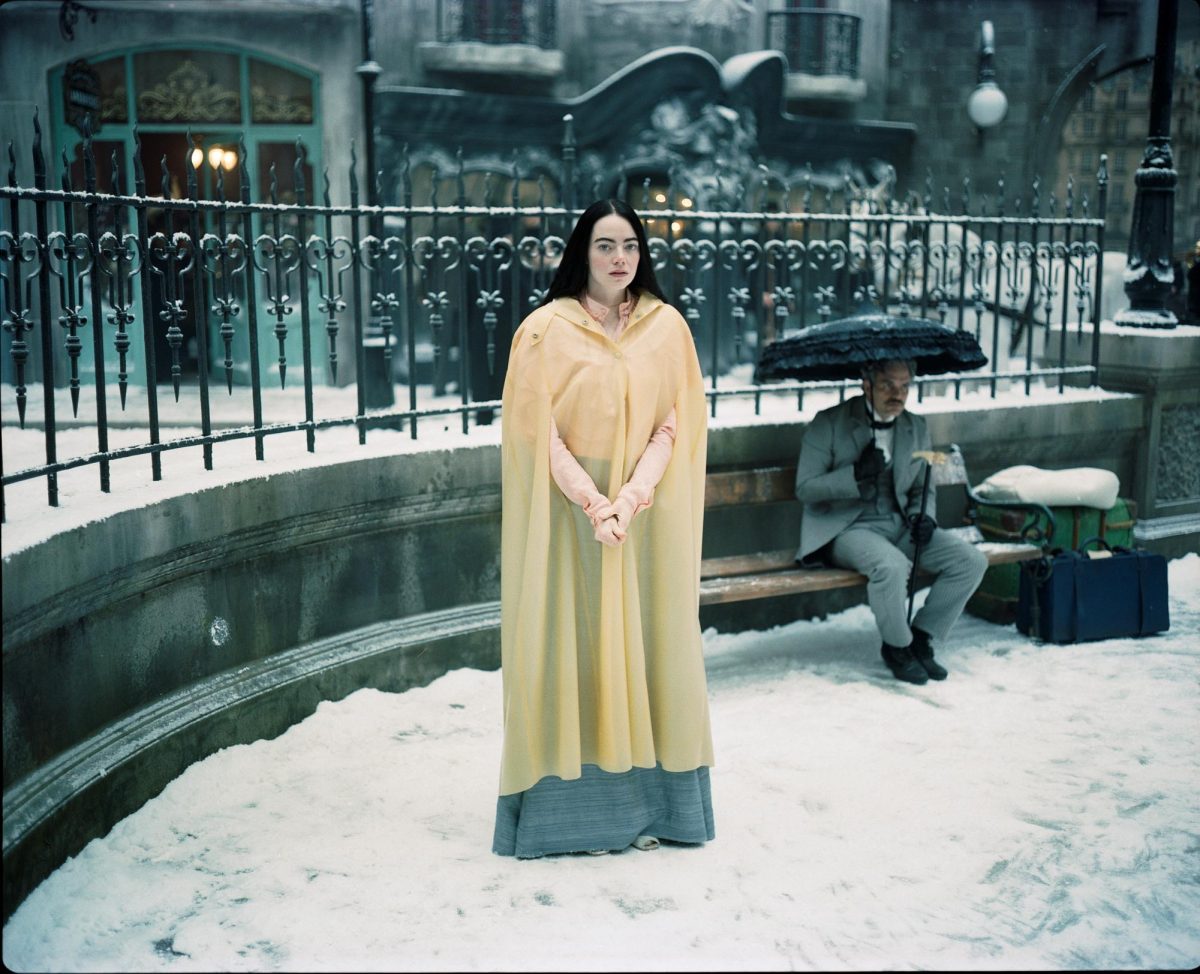Yorgos Lanthimos, known for “The Lobster” and “The Favourite,” premiered his latest film at the New York Film Festival on Sept. 29. The Greek director, popular for his absurdist narratives and societal satire, takes his works to new heights with “Poor Things.”
Described as a feminist adaptation of “Frankenstein,” the film tells the story of Bella Baxter (Emma Stone), a young woman who is brought back to life by Dr. Godwin Baxter (Willem Dafoe) using the brain of an infant. Following the procedure, the series of events that unfold are thrilling and incredible.
Based on the 1992 eponymous novel by Alasdair Gray, the story takes on the unending misogyny and double standards that women face, while at the same time, allowing the viewer to experience the world through the eyes of a newborn, intentionally forcing a rebirth of optimism and wonder for the world that may be withering away, culturally.
The film is vibrant, bright and colorful which allows viewers to imagine seeing the world for the first time through Baxter’s eyes.
Lanthimos has created a fascinatingly chaotic film, that sparks fascinating existential questions, about a woman with the brain of a child. Is life defined by the social expectations that one is expected to fall in line with or is it defined by how we choose to deviate from the status quo
Does life mean one must conform to society’s expectations? Or does life mean one must follow one’s dreams? Or is it more complex than that? While the film does provide an answer, it gives the audience space to draw their own conclusions.
As for the acting, Stone’s performance as Baxter is something that most actors could not achieve in their entire lifetime. It is raw, passionate and it is the heart and soul that makes this film feel alive.
Stone plays a woman trying to discover herself in a world that can be unjust and cruel, while never losing her childlike optimism and desire for improvement. The actress assumes the role with a conviction that makes it almost impossible not to root for Baxter and her journey of self-discovery.
In a year where cinema seems to be focused on highlighting the stories of women, “Poor Things” certainly abides, if not exceeds those standards.
The rest of the cast — Dafoe, Ramy Youssef, Jerrod Carmichael and Christopher Abbott — all give exceptional performances in their respective roles. Unfortunately, none of them hold a candle to what Mark Ruffalo accomplishes in this film. Portraying an incredibly hilarious, juvenile, yet hateful character, Ruffalo never fails to deliver, and his performance is second only to Stone.
The production values are stunning and while the aesthetics depart from Lanthimos’ usual style of bleak tones and cool color palettes, the film is vibrant, bright and colorful which allows viewers to imagine seeing the world for the first time through Baxter’s eyes. The narrative takes us all over Europe — from Portugal to Greece, Paris and London — with each place serving a different purpose in Baxter’s self-discovery.
Although the overt sexual imagery used throughout the film and on the sets may be too much for some, it advances on the double standards women face regarding sex. In fact, the entire film uses Baxter’s experience to comment on the societal hypocrisies women face, by showing how the men in her life try to control her, in more extreme ways than others.
While Baxter’s path is messy, comical, difficult and most of all heartbreaking, it still allows her to engage in a journey of self-exploration.
I honestly cannot get enough of this film, with its universal message of wanting to be understood in a world that refuses to recognize one’s humanity; it is a triumph of what films can be and how there is no limit to the stories we can tell.

